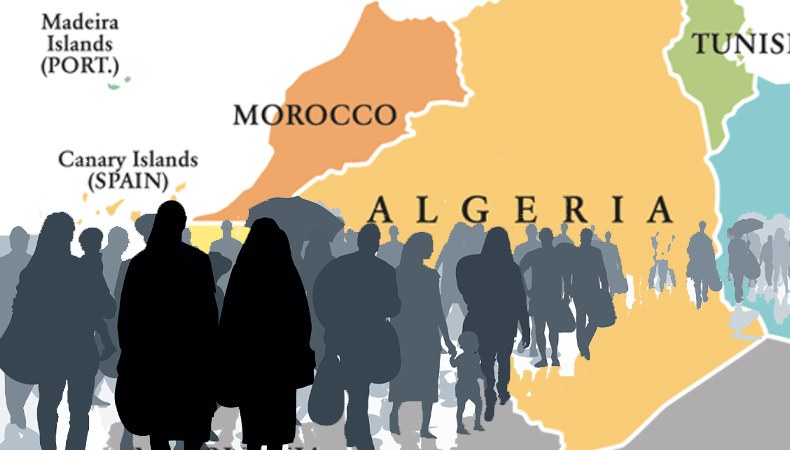Over 50% of Arabs in Levant & N.Africa Want to Emigrate

Research shows that more than half of young Arabs in North Africa and the Levant are trying to leave their home countries or are thinking about it. They want to find better jobs abroad. Asda’a BCW’s latest Arab Youth Survey, which came out on Thursday, found that 53% of 18–24-year-olds in Levantine countries (Jordan, Syria, Iraq, Lebanon, Yemen, and the Palestinian territories) and 48% of those in North Africa wanted to move for work.
This number goes down to 27% in the oil- and gas-exporting Gulf Cooperation Council countries, where living standards are higher than in the rest of the region. Canada is the most popular place to visit, with 34% of those polled choosing to go there. The US came in second with 30%, followed by Germany (20%), the UK (20%), and France (17%). Asda’a BCW, which has done the survey every year for the past 15 years, said, The desire to leave is linked to the poor economic outlook in many Arab countries. The survey found that 72% of Levant and almost two-thirds of North African youth believed their country’s economy was heading in the wrong direction.
About two-thirds of people in both North Africa and the Levant said their governments did not have the right policies to deal with their most important problems. UN figures show that one out of every five people in the Arab world is between the ages of 15 and 24. This makes youth the largest group in terms of population. The World Bank says that the average youth unemployment rate of 26% is the highest in the world. Mustapha Kamel al-Sayed, a professor of political science at Cairo University, said, “The region has a lot of young people, but governments haven’t been able to grow fast enough to give people jobs that pay enough to meet their basic needs.” “In some countries, like Lebanon, Tunisia, or Libya, there is political instability, while in others, like Egypt or Algeria, there is a misallocation of resources and not enough help for the private sector,” he said. Official numbers show that the youth unemployment rate in Tunisia rose to 40.2% in the first quarter of 2023.
Keep Reading
Malika Atwani, a classmate, said that she wanted to move to France. My family doesn’t mind because they want me to do well in life. Since Lebanon’s financial meltdown began in 2019, many young people have left the country to find jobs and go to school abroad. Since then, the currency has lost more than 98% of its value against the dollar. This has made more than 80% of the population poor and wiped out a large part of the middle class.
Sandra Abi Rached, who is 22 years old, said she had to stop going to school when the financial crisis hit so she could get a job and help support her parents. I work at the mall during the day and try to get visas to leave during the night. If I can find a job abroad, I’m sure I’ll be able to send more money home and eventually help my parents leave this troublesome country.
Many Lebanese families depend on money sent from relatives who work in the Gulf states, Europe, or North America because their savings are now worthless. The World Bank predicted that remittances to Lebanon would be worth $6.4 billion in 2022. This would make them the third largest source of income for the country’s GDP, at 36%.
Sunil John, BCW’s president for the Middle East and North Africa, said that youth emigration is a huge drain on the Arab world’s economy and must be stopped if the region is to benefit from the youth dividend.







